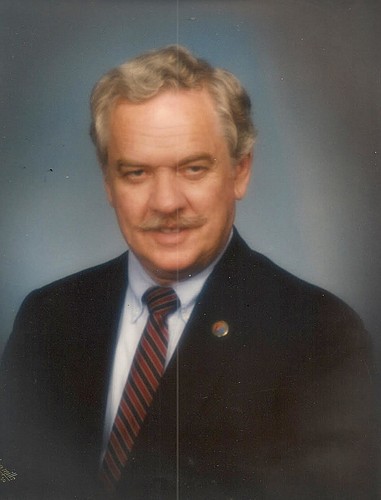- April 1, 2025
-
-
Loading

Loading

They called him the “Bridge Builder.”
He fought from his pulpit against the racism and inequality that ran rampant during the Civil Rights era with a divine grace.
Now, the late Rev. Kenneth Crossman is being remembered in the most fitting way possible — with a rail bridge that passes over South Orlando Avenue being named in his honor.
“It’s been energizing for me to see the overwhelming support from all different people, from all different backgrounds,” said John Crossman, son of the late reverend. “I think that we are in a time in U.S. history when there are debates on tearing down monuments or building up walls — but take a bridge and use it to remember somebody who worked so hard to get people to love each other.”
The dedication of the bridge comes as a part of Senate Bill 368, which renames 37 different Florida roads, highways and bridges in honor of fallen soldiers, law-enforcement officials and community leaders. Winter Parker and former House Rep. Mike Miller sponsored a house version of the bill.
It’s fitting that this specific bridge was chosen to honor Crossman, because it is the same one the reverend had approached Rick Baldocchi, a former Maitland City Council member, about possibly painting. Unfortunately, it did not happen before Crossman died in 2004.
“It’s been energizing for me to see the overwhelming support from all different people, from all different backgrounds.”
— John Crossman
The idea of renaming the bridge didn’t surface until 2013, when John Crossman befriended Baldocchi. The renaming of the bridge would be both a symbolic and literal representation of the work Crossman had done bridging communities together.
“Before my dad died, he was a part of a group called Bridge Builders in Winter Park and worked in bringing communities in Winter Park together,” John Crossman said. “The bridge connects Winter Park, Maitland and Eatonville — and that’s just cool.”
The reverend grew up in Toledo, Ohio, with a great understanding of equality under the tutelage of his father, who ran a dry cleaning business that employed both whites and African-Americans. That early upbringing around diversity helped establish a core belief system in equality, which would prove to be an important aspect in Rev. Crossman’s life.
After spending a few years as a salesman in South Florida, Rev. Crossman decided to go into the ministry and attended Emory University. From there, he had found his calling in preaching sermons that were filled with love of all people and a call to end racism.
In one particular moment, John Crossman recalled a trip he took with his parents as a child to Georgia, during which his father participated in a revival back in the late 1960s/early 1970s.
“We were at this diner for lunch, and the waitress told us there was this Klan rally that night, so when we went to church my dad just went off and he completely denounced the Klan,” John Crossman said. “Later that night when we were at the hotel room, I looked at my dad and said, ‘Dad I don’t think you should have done that.’ And he was just as calm as could be and said, ‘Don’t worry about it.’”
After going back and doing some research just a couple of years ago, John Crossman realized the magnitude of what his dad had done. Rev. Crossman hadn’t just denounced the Klan during a peak period for the group; he had done it in Stone Mountain, Georgia — the Klan’s headquarters.
“He was taking on the Klan in their backyard,” John Crossman said. “In the core of his faith, he felt like, ‘This is the right thing, this is the right moment.’”
That moment was just one of many during which Rev. Crossman took a strong stand for humanity and equality, even though many times it was an unpopular one — especially during those days during the Civil Rights era.
Now is a different day, and honoring the late Rev. Crossman shows a commitment to forwarding the message of love and bringing people together, John Crossman said.
“It’s really cool to honor my dad, but the big message for me is that I love living in a community that believes in bridge building, and I think our community really does embrace that as a concept,” he said.